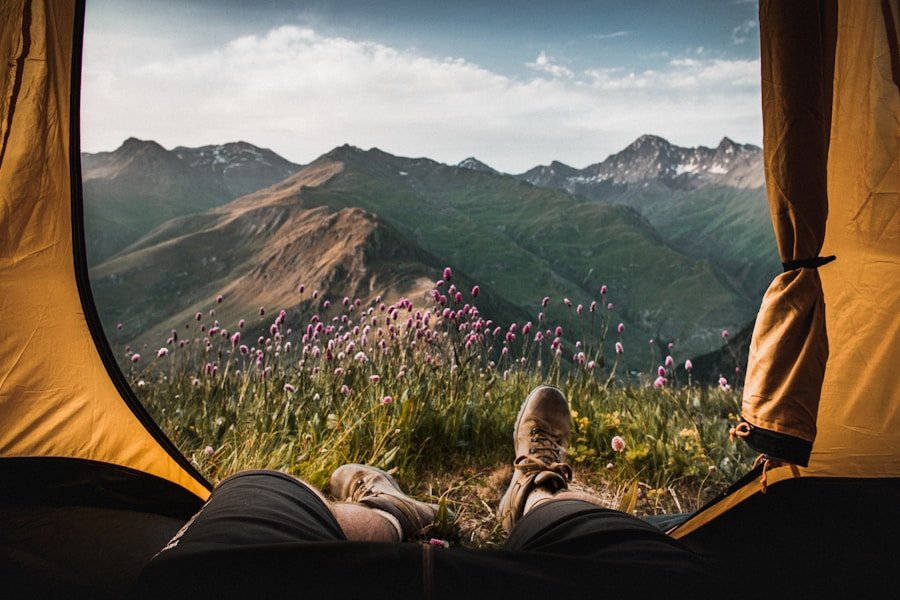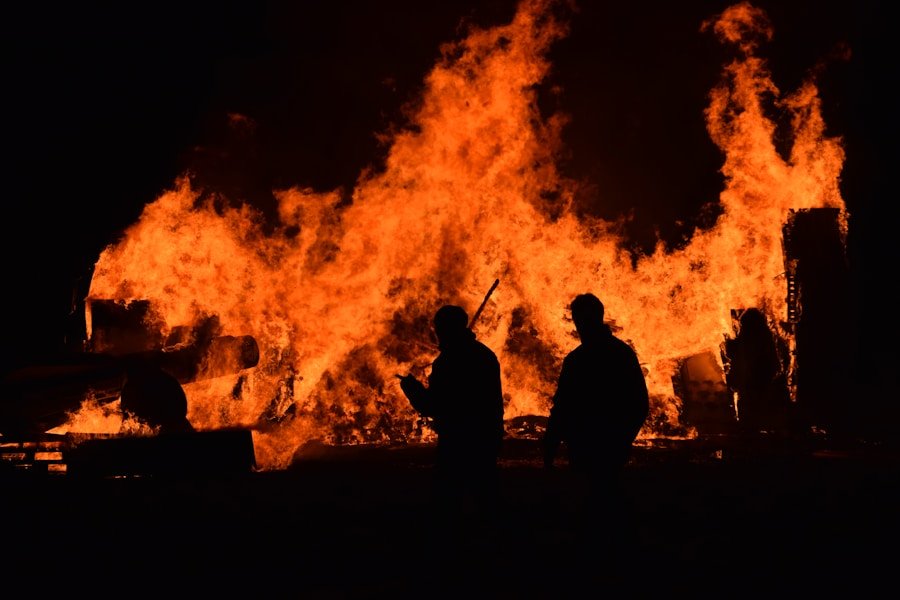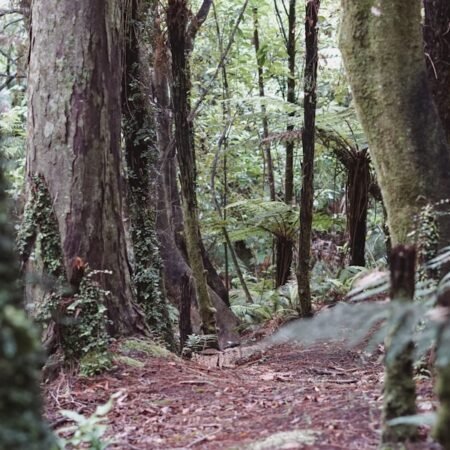When preparing for a camping trip, it is crucial to strike a balance between packing enough gear and avoiding unnecessary bulk. Overpacking can result in excessive weight and volume, making it challenging to transport equipment to the campsite or fit it in a vehicle. Conversely, underpacking can leave individuals unprepared for unexpected weather conditions or emergencies.
To avoid these issues, it is essential to carefully assess the necessities for the trip and eliminate non-essential items. Create a list of essential items, including a tent, sleeping bag, cooking supplies, and clothing, and adhere to it. Additionally, consider the trip’s duration and planned activities, as shorter trips typically require less gear than longer excursions.
By packing efficiently and intelligently, campers can ensure a more enjoyable and stress-free experience. On the other hand, underpacking can also lead to problems. Omitting essential items, such as a first aid kit, extra clothing layers, or sufficient food and water, can put individuals in hazardous situations.
Thorough planning and preparation are vital to avoid such issues. Campers should consider all potential scenarios, including weather forecasts, campsite terrain, and planned activities, to pack accordingly. By doing so, they can avoid the frustration and inconvenience of lacking essential items when needed.
Key Takeaways
- Avoid overpacking or underpacking for your camping trip to ensure you have everything you need without being weighed down.
- Always check the weather forecast before heading out to avoid being caught unprepared for any unexpected weather conditions.
- Choose your campsite carefully to avoid setting up in a spot that is prone to flooding, strong winds, or other hazards.
- Make sure to bring the right gear for your camping trip, including essentials like a tent, sleeping bag, and cooking equipment.
- Plan your meals ahead of time and pack and store your food properly to avoid running out of supplies or attracting wildlife to your campsite.
Ignoring Weather Forecasts
Pre-Trip Planning: Check the Forecast
One of the most common camping mistakes is ignoring weather forecasts. Failing to check the weather before your trip can lead to a variety of problems, from being unprepared for rain or cold temperatures to putting yourself in a dangerous situation during severe weather. Before heading out on your camping trip, be sure to check the forecast for your destination and pack accordingly.
Packing for the Unexpected
If rain is in the forecast, bring waterproof gear and tarps to keep your campsite dry. If temperatures are expected to drop at night, pack extra layers and a warm sleeping bag. By staying informed about the weather, you can better prepare for any conditions that may arise and ensure a more comfortable and safe camping experience.
Staying Informed While Camping
In addition to checking the forecast before your trip, it’s also important to monitor the weather while you’re camping. Weather can change quickly, especially in mountainous or coastal areas, so it’s crucial to stay updated on any developments. Bring a portable weather radio or download a weather app on your phone to stay informed about any potential storms or severe weather warnings.
Safety First: Making Informed Decisions
By staying aware of the weather conditions, you can make informed decisions about your activities and ensure the safety of yourself and your fellow campers.
Setting Up Camp in the Wrong Spot
Choosing the right campsite is essential for a successful camping trip. Setting up camp in the wrong spot can lead to a variety of issues, from discomfort and inconvenience to safety hazards. When selecting a campsite, consider factors such as terrain, proximity to water sources, and potential hazards such as falling branches or wildlife activity.
Avoid setting up camp in low-lying areas that could flood during rainstorms, and steer clear of areas with heavy insect activity or potential animal encounters. Additionally, be mindful of any regulations or restrictions in place for the area where you plan to camp, such as designated camping areas or fire restrictions. It’s also important to consider the layout of your campsite when setting up your tent and other gear.
Look for level ground that is free of rocks and debris, and consider factors such as wind direction and sun exposure when choosing a spot for your tent. By carefully selecting your campsite and setting up camp in the right spot, you can ensure a more comfortable and enjoyable camping experience.
Not Bringing the Right Gear
| Mistake | Consequence |
|---|---|
| Not checking the weather forecast | Being unprepared for extreme weather conditions |
| Not bringing enough water | Dehydration and potential health risks |
| Setting up camp in a low-lying area | Risk of flooding during rain |
| Leaving food out in the open | Attracting wildlife and potential danger |
| Not packing proper gear | Difficulty in handling unexpected situations |
Another common camping mistake is not bringing the right gear for your trip. Failing to pack essential items such as a tent, sleeping bag, cooking supplies, or proper clothing can lead to discomfort and inconvenience during your camping adventure. Before heading out on your trip, make a list of essential gear and carefully pack everything you need.
Consider factors such as the length of your trip, the activities you plan to do, and the weather forecast for your destination. If you’re going on a hiking or backpacking trip, for example, you’ll need lightweight and compact gear that is easy to carry. If you’re camping in cold or wet conditions, be sure to pack waterproof gear and extra layers of clothing to stay warm and dry.
In addition to packing the right gear for your trip, it’s also important to properly maintain and care for your equipment. Inspect your gear before each trip to ensure that it is in good condition and functioning properly, and clean and store it appropriately after each use. By taking care of your gear and packing the right items for your trip, you can avoid the frustration of being unprepared and ensure a more enjoyable camping experience.
Forgetting to Plan Meals
Proper meal planning is essential for a successful camping trip. Forgetting to plan meals can lead to hunger, frustration, and wasted food during your adventure. Before heading out on your trip, make a meal plan and create a shopping list of all the ingredients you’ll need.
Consider factors such as the length of your trip, the number of people in your group, and any dietary restrictions or preferences. Plan meals that are easy to prepare at your campsite and require minimal cooking equipment, such as one-pot meals or foil packet dinners. Additionally, consider factors such as shelf-stable foods that won’t spoil quickly and easy-to-pack snacks for hiking or other activities.
In addition to planning meals for your trip, it’s also important to pack and store food properly to prevent spoilage and attract wildlife. Use airtight containers or resealable bags to store perishable items such as meat and dairy products, and keep them in a cooler with plenty of ice or ice packs to maintain a safe temperature. Store non-perishable items such as canned goods, dry goods, and snacks in a secure location away from your campsite to prevent attracting animals.
By planning and preparing meals properly for your camping trip, you can ensure that everyone in your group stays well-fed and satisfied throughout your adventure.
Failing to Properly Store Food
Research and Preparation
Before heading out on your camping trip, it’s essential to familiarize yourself with the regulations and guidelines for food storage in the area where you plan to camp. Some areas may require the use of bear-proof containers or hanging food bags to prevent animals from accessing your food supply.
Packing and Storage
When packing for your trip, make sure to store all food items in secure containers or resealable bags to prevent spills or leaks that could attract animals. Choose a designated area for food storage at your campsite, away from your sleeping area and cooking area.
Securing Food at the Campsite
Hang food bags from a tree branch or use bear-proof containers if required by regulations in the area where you are camping. Keep all food items sealed and secure at all times, especially at night when animals are most active. By following these guidelines, you can prevent spoilage and waste while minimizing the risk of wildlife encounters.
Disregarding Leave No Trace Principles
One of the most important aspects of responsible camping is following Leave No Trace principles. Disregarding these principles can lead to environmental damage, habitat destruction, and negative impacts on wildlife in natural areas. Before heading out on your camping trip, familiarize yourself with Leave No Trace principles and commit to following them throughout your adventure.
These principles include guidelines such as packing out all trash and waste, staying on designated trails and campsites, minimizing campfire impacts, respecting wildlife, and being considerate of other visitors. When setting up your campsite, be mindful of any regulations or guidelines in place for the area where you plan to camp. Use established campsites whenever possible and avoid creating new ones that could damage vegetation or disturb wildlife habitat.
Minimize campfire impacts by using established fire rings or portable stoves for cooking, and always fully extinguish fires before leaving your campsite. Pack out all trash and waste from your campsite, including food scraps and biodegradable items such as fruit peels or nut shells. By following Leave No Trace principles during your camping trip, you can minimize your impact on the environment and help preserve natural areas for future generations to enjoy.
In conclusion, avoiding common camping mistakes is essential for a safe, enjoyable, and responsible outdoor adventure. By carefully considering factors such as packing efficiently, checking weather forecasts, choosing the right campsite, bringing essential gear, planning meals, storing food properly, and following Leave No Trace principles, you can ensure a more successful camping experience. Whether you’re a seasoned outdoor enthusiast or new to camping, taking the time to prepare and plan for your trip will help you avoid common pitfalls and enjoy all that nature has to offer.
By being mindful of these common mistakes and taking steps to prevent them, you can make the most of your time in the great outdoors while minimizing negative impacts on the environment.
FAQs
What are some common camping mistakes to avoid?
Some common camping mistakes to avoid include not checking the weather forecast, forgetting essential items such as a first aid kit or proper clothing, setting up camp in a low-lying area prone to flooding, and not properly securing food to prevent wildlife encounters.
Why is it important to avoid these camping mistakes?
Avoiding common camping mistakes is important for ensuring a safe and enjoyable camping experience. Failing to prepare for inclement weather, wildlife encounters, or other potential hazards can lead to discomfort, injury, or even dangerous situations.
How can I prevent making these camping mistakes?
To prevent making common camping mistakes, it’s important to thoroughly plan and prepare for your trip. This includes checking the weather forecast, creating a comprehensive packing list, researching the camping area for any specific hazards, and familiarizing yourself with proper camping techniques such as food storage and wildlife safety.













